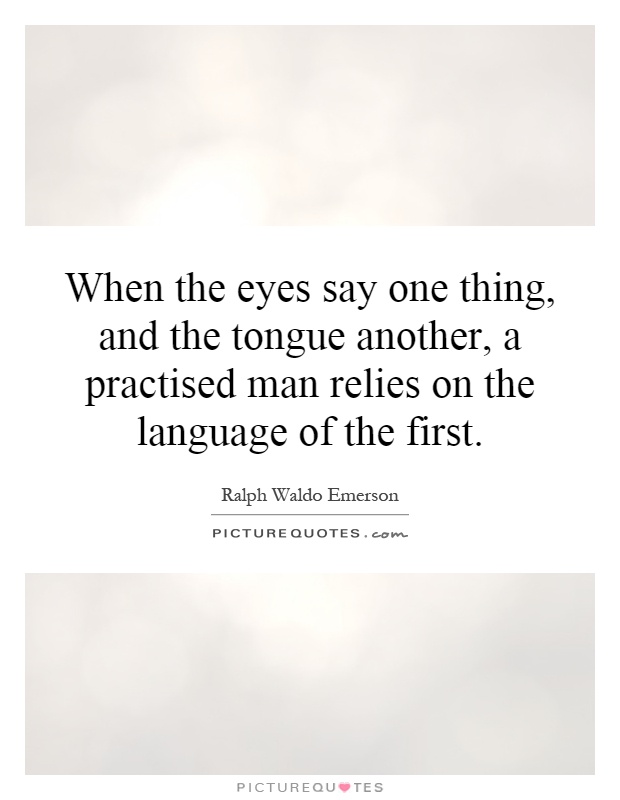When the eyes say one thing, and the tongue another, a practised man relies on the language of the first

When the eyes say one thing, and the tongue another, a practised man relies on the language of the first
Ralph Waldo Emerson, a renowned American essayist, lecturer, and poet, was a firm believer in the power of intuition and the importance of listening to one's inner voice. In his essay "Self-Reliance," Emerson emphasizes the significance of trusting one's instincts and intuition over the opinions and words of others. This sentiment is reflected in the quote, "When the eyes say one thing, and the tongue another, a practised man relies on the language of the first."Emerson believed that true wisdom and understanding come from within, and that one must learn to trust their own instincts and intuition in order to navigate the complexities of life. He believed that the eyes are the windows to the soul, and that they often reveal more about a person's true thoughts and feelings than their words ever could. In this sense, Emerson suggests that one should pay more attention to nonverbal cues and body language, as they can often provide more insight into a person's true intentions and emotions.
Emerson's emphasis on self-reliance and intuition is a recurring theme in his work, as he believed that individuals should trust their own judgment and instincts rather than relying on the opinions and beliefs of others. He believed that true wisdom and understanding come from within, and that one must learn to listen to their inner voice in order to live a fulfilling and authentic life.












 Friendship Quotes
Friendship Quotes Love Quotes
Love Quotes Life Quotes
Life Quotes Funny Quotes
Funny Quotes Motivational Quotes
Motivational Quotes Inspirational Quotes
Inspirational Quotes